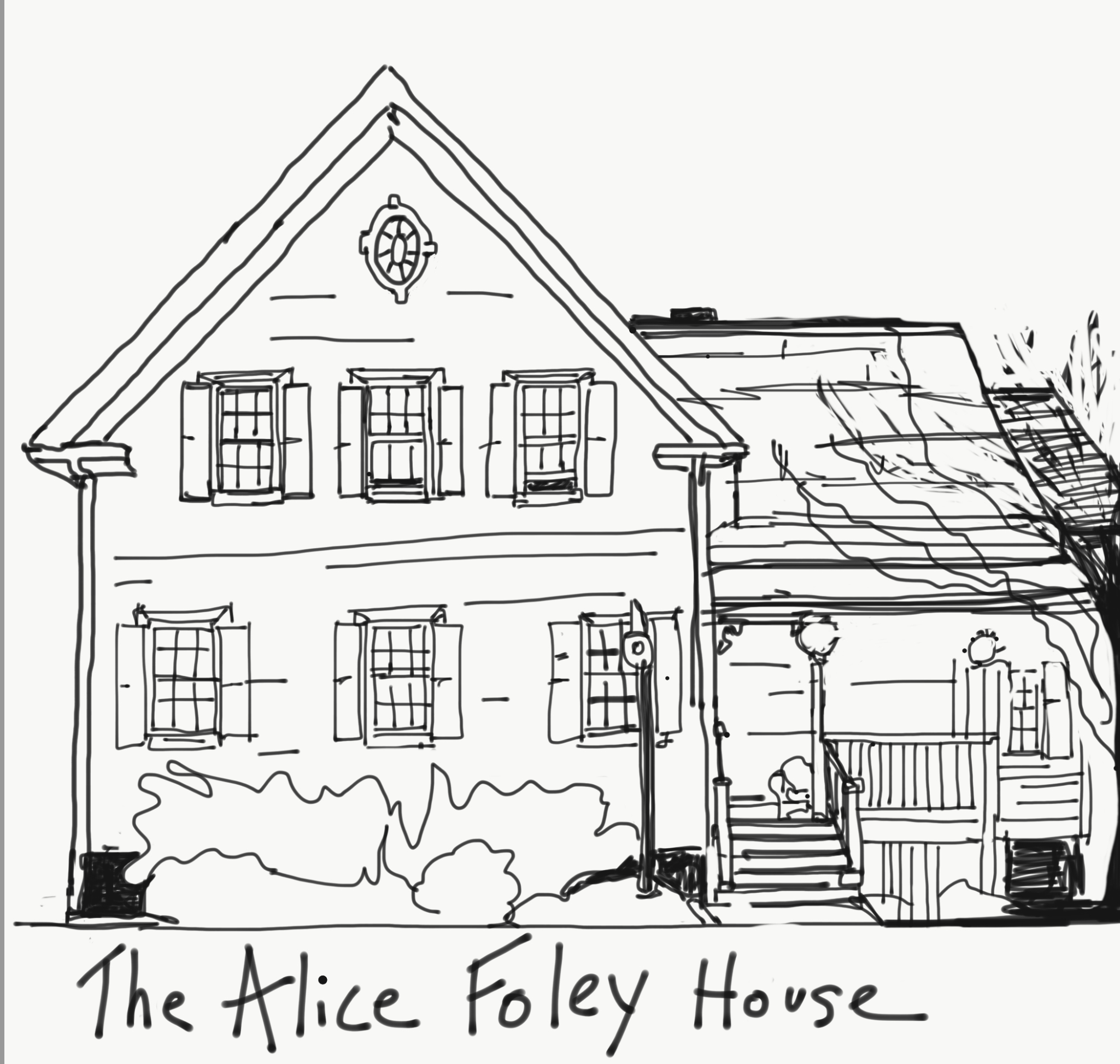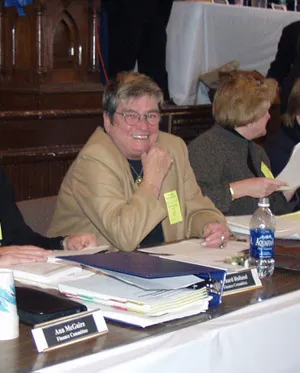Provincetown Housing Authority, 214 Bradford Street, Provincetown, MA 02657

The Foley House
214 Bradford Street “This house is proof that we are family here in Provincetown,” said Alice Foley (pictured) in 1996 at the dedication of Foley House, an assisted-living, congregate home for 10 otherwise homeless people living with H.I.V. and AIDS — the only program of its kind on the Cape. Foley cofounded the Provincetown AIDS Support Group (now the AIDS Support Group of Cape Cod). Its housing director, Irene Rabinowitz, worked on this project with the Provincetown Housing Authority. The effort began as a renovation, but the contractor demolished the existing structure in 1995. The house then had to be reconstructed. There are 10 bedrooms, each with a refrigerator and microwave oven, and two kitchens. [Photo of Foley from The Provincetown Banner archive, courtesy of Sally Rose.]

Foley arrived in Provincetown in the late ’60s, early ’70s, aiming to drop out of her nursing career. But she soon found a calling as a nurse at the former Drop-In Center tending to those wrestling with drug abuse, STDs and the like.
She then worked as the town nurse (now called the director of public health) from 1980 to ’93, with Judy Dutra assisting her, said friend Bruce de Ste. Croix, who recently interviewed Foley for an AIDS documentary he and others are working on under the aegis of the Provincetown Public Library.
In 1982, seeing a need to create an organization to take on the ravages of an as-yet-unnamed and deadly disease, she rallied together a small group, including the late Preston Babbitt, Bill Scott, Mike Wright and Alan Wagg, and they created the Provincetown AIDS Support Group.
In the early years, they provided for patients in their homes, working out of Foley’s car trunk. She would park down the street, so no one would know whose house she was visiting — the stigma was only just budding at that time.
She served as head of PASG from ’86 to ’93 while still working as the town nurse. In 1993 she became the organization’s full-time executive director.
“Alice … worked tirelessly to help organize this community’s response to the AIDS crisis,” said de Ste. Croix.
In 1995 the HIV/AIDS culture was changing rapidly, and clients were becoming empowered. In a fairly public upset, Foley became frustrated and angry over some of those changes and resigned in early 1995.
In a story in the Banner in 1998, Foley described that time: “I never said I was easy. … On one level I am a very principled woman, but there’s a line I can’t cross. … What was happening was a very bad policy to establish, to give people who own $350,000 homes a lousy $50 a month to buy vitamins was wrong, and there was no way I was going to back down on that.”
Despite the controversy of that time, most still remember her as the trailblazer and maverick she was, and credit her with an unmatched vision for dealing with the early stages of the AIDS pandemic.
“Alice gave herself to so many people,” said Gilbert. “I don’t know what would have happened during that critical period if it hadn’t been Alice in that job. It was a time when there was no advocacy for that scary, dreaded disease.”
Friend Robert Vetrick, who also served on the FinCom with Foley, agreed. What Foley did “was really significant because it was while the rest of the country was running around with their heads cut off. She was really ahead of the whole thing. [The PASG] became sort of a model for others around the country.
“When she ran it, it ran completely on donations. And everything went to patient services,” said Vetrick, adding, “She was one of the brightest women I ever met. … And, as everyone knows, she didn’t suffer fools, she said exactly what she thought.”
Foley served on the FinCom for several terms over many years.
“She had the same spirit and stick-to-it-ness of her convictions on the finance committee as she did as a town nurse,” said Gilbert.
In addition to her public service, during her nearly 40 years in town Foley owned two restaurants, Alice’s Restaurant and The Little Fluke, which she owned with Devon Ruesch. And she once ran a high-end pottery shop, said Vetrick.
“Alice Foley loved Provincetown,” said de Ste. Croix. And she was wont to announce it proudly and frequently.
“I can remember in the early ’90s walking my dog on the West End beach and hearing Alice’s gravelly voice hollering from her deck ‘Come here! Babycakes!’ as her beloved dog ran crazily through the tidal flats,” said de Ste. Croix. “That Alice was able to be back in town and in her home when she passed away seems fitting, since during the early years of the AIDS epidemic when people were dying rapidly, Alice worked incredibly hard to make sure that anyone who wanted to die at home was able to do so.”